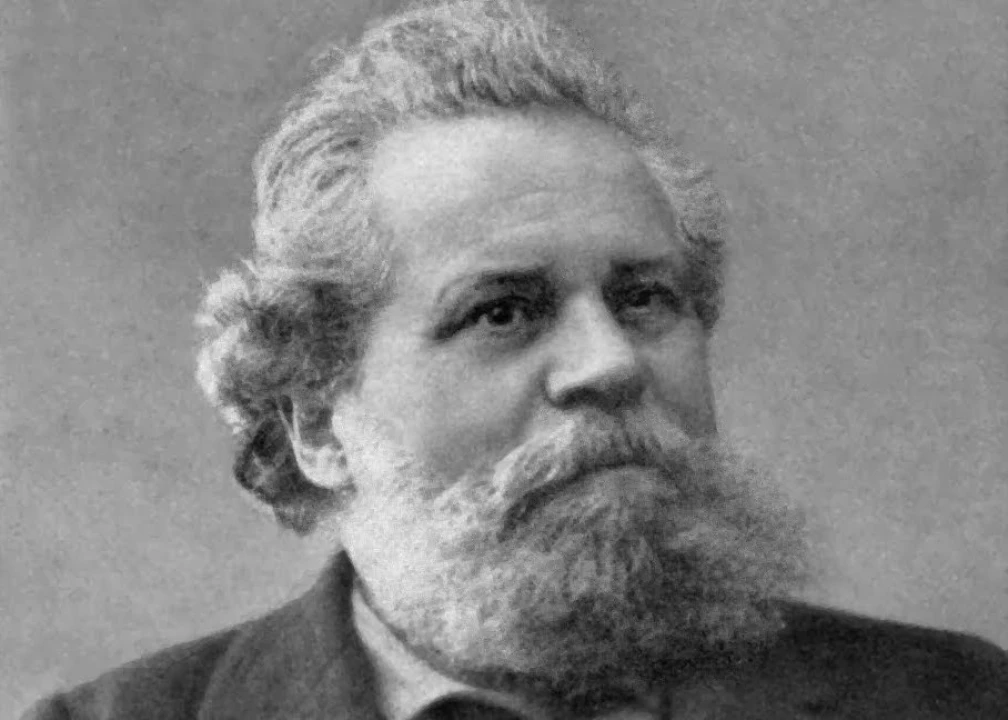Giosuè Carducci (1835-1907) was born in Val di Castello, a small town near Pisa. Son of a republican country doctor, Carducci spent his childhood in the wild Maremma region of southern Tuscany. He was early attracted to the Greek and Roman authors. He conscientiously studied the Italian classics as Dante, Tasso, and Alfieri.
At the age of twenty he graduated with a degree in philosophy and letters from the University of Pisa. After several difficult years in which he taught in various high schools, he gained the chair of Italian Literature at the University of Bologna, where he landed in 1860 and where he teached for more than 40 years never repeating the same lesson once!
In his youth Carducci was the centre of a group of all these men determined to overthrow the prevailing Romanticism and to return to classical models. Giuseppe Parini, Vincenzo Monti, and Ugo Foscolo were his masters, and their influence is evident in his first books of poems Rime, 1857; (Rhymes), followed by Levia Gravia,1868, (Light and Heavy). Both reveal his enthusiasm for and imitation of the ancients as well as a strong revolutionary tendency (an attitude that we all would need nowadays).
Inno a Satana, 1865, (Hymn to Satan), for which Carducci was considered to be a “notorious praiser of Satan”, is the full expression of his free thought and of modern ideas, inventions, and revolutions. He showed both his great power as a poet and the strength of his republican, anticlerical feeling.
He really had a poetical imagination and style and his best prose works equal his poetry.
The bitterness of some of his poetry revealed frustration and rebelliousness of childhood, evocations of landscape, laments for domestic sorrows, an inspired representation of historical events, an ambitious effort to resuscitate the glory of Roman history, and an (let me say that) anachronistic but sincere cult of pagan civilization.
But do not call him “just” a poet! He also was an excellent translator, a great teacher and Orator. He led a very active political life. Carducci’s poetry indeed, inspired his compatriots in the war for Italian independence, and he enjoyed an immense popularity both at home and abroad.
He became also an honorary citizen of Bologna and he was elected to Senate in 1890.
Carducci was an outstanding figure whose enthusiastic support for the national cause during the struggle of 1859–61 was changed to disillusionment by the difficulties in which the new kingdom was involved.
Giosuè Carducci was the first Italian to receive the Nobel Prize in Literature, in 1906. He died in Bologna, at home, at the age of 71.
The house where he died is still hosting the Museum of Risorgimento and contains an exhibits on the author.
"Not only in consideration of his deep learning and critical research, but above all as a tribute to the creative energy, freshness of style, and lyrical force which characterize his poetic masterpieces."
Nobel Prize in Literature - 1906




